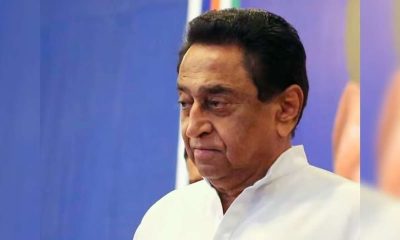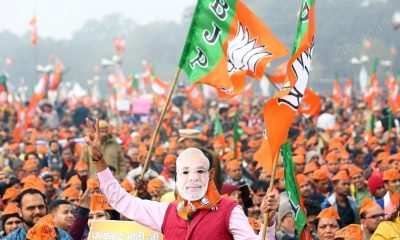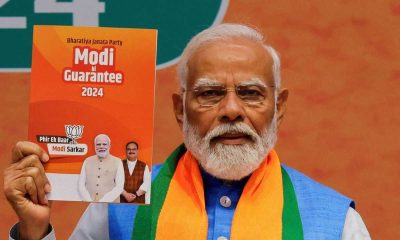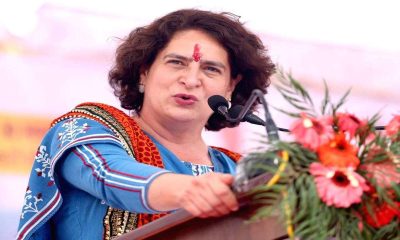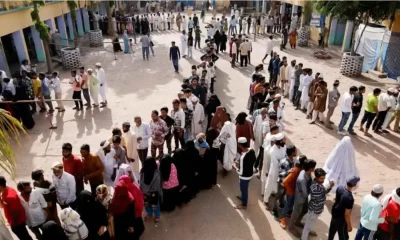India News
Behind the deadly Tuticorin affair: Centre tweaked rules to help Vedanta avoid public hearing
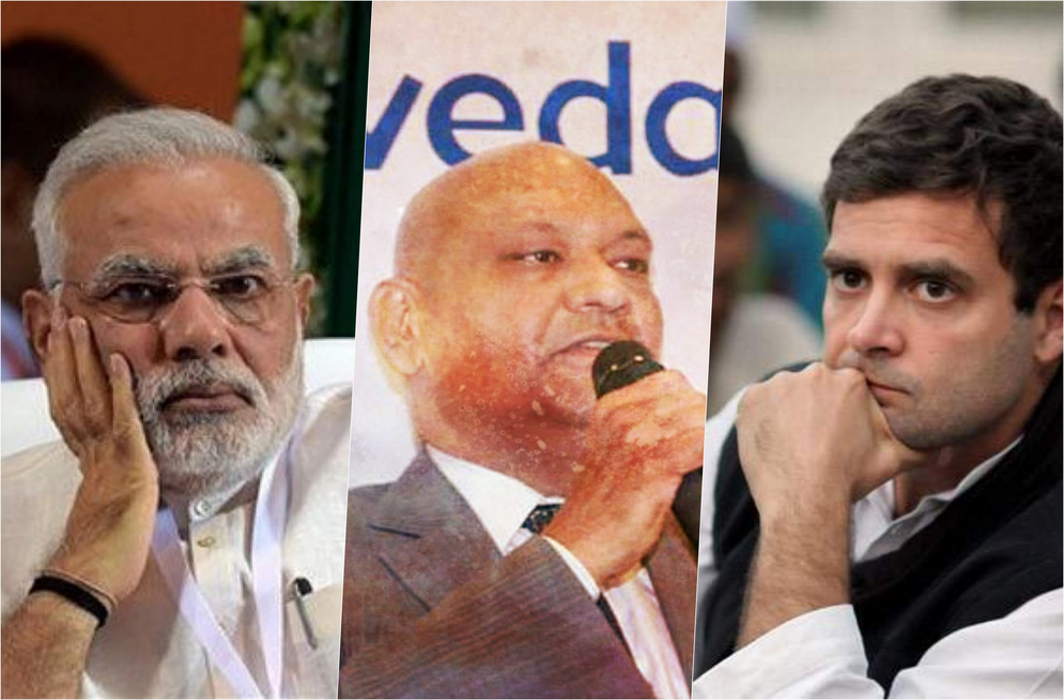
When local opposition to Vedanta owned Sterlite copper plant in Thoothukudi (earlier ‘Tuticorin’) exploded in an aggressive protest leading to violence and police firing which took 13 lives, Madras High Court stayed the expansion of the plant and ordered it to go for a public hearing. The company claimed it was not a legal requirement.
Some reports after this revealed that this was because the rules had been tweaked by the Centre to favour Vedanta.
While the Tamil Nadu government has been facing the ire for police action and is accused of favouring Vedanta, it is the UPA and then the Modi government which changed laws and tweaked rules for the company. The Modi government went to new lengths – we shall come back to it later here.
To begin with, said a report in The Economic Times (ET), Sterlite Industries was allowed by both the UPA and NDA governments to construct the copper smelter in Tuticorin without carrying out the mandated public hearing process.
The plant was first given the green signal by the environment ministry’s expert appraisal committee in 2008, when the United Progressive Alliance was in power, the ET report said.
In 2008, Vedanta’s Sterlite Industries Limited had sought exemption from public consultation. The 2006 Environment Impact Assessment (EIA) Rules state: “All Category ‘A’ and Category B1 projects or activities shall undertake public consultation, except… all projects or activities located within industrial estates or parks.”
Copper smelter plants fall under category A. However, Sterlite Industries sought for an exemption to this rule in 2008, stating that the smelter was located within an industrial park.
According to the report, the industrial park in question was not granted environmental clearance as the State Industries Promotion Corporation of Tamil Nadu (SIPCOT) industrial park was developed before the notification of the Environmental Impact Assessment rules. As the 2006 Environment Impact Assessment rules do not cover industrial parks which did not receive environmental clearance, officials quoted in the report say that this was the grey area where Sterlite brought forward its plea.
The project got the clearance in 2008, but was held up for five years as the environmental clearance process was challenged in court.
The government changed and Modi government took charge. It ‘resolved’ the issue in December 2014 when the environment ministry stated in a memorandum that an exemption of projects from public consultation “is available to the projects or activities or units located in industrial estates or parks, which were notified prior to September 14, 2006, i.e EIA notification coming into force”.
The memorandum was struck down by the National Green Tribunal (NGT) in 2016, but not before Sterlite secured a five-year extension on its environmental clearance for its expansion project.
This helped plants such as the one at Thoothukudi to be constructed without taking the people of the affected area into confidence.
This move enabling the existing rules to be passed was done through mere orders from ministry which called it a ‘clarification’. In effect, laid down notified regulations under the law were re-interpreted by a mere executive order in the name of providing a ‘clarification’ to the industry.
This allowed Vedanta and other industries who made pleas, to go ahead with their projects without holding discussions with the public, said a report in The Business Standard (BS).
This interpretation by the NDA government came an a bonanza for companies because the environment ministry under UPA government had insisted in May 2014 that projects such as Vedanta’s in Thoothukudi were required by law to first go through public consultations, the BS report said.
The NDA government reversed this position in December 2014 and in March 2015 the environment ministry extended Vedanta’s environmental clearance till December 2018. This it did even while the question of the need for public hearing by projects in different kinds of industrial parks was being contested in the courts. This allowed the company to carry out construction.
In 2016, the National Green Tribunal (NGT) ruled as illegal the December orders of the NDA government, which favoured Vedanta. Ministry officials maintained that annulling the government’s December 2014 orders would severely affect several projects, but the NGT eventually quashed the orders and on its directions, the ministry passed fresh orders expressly stating that projects in industrial parks without environmental clearances needed to hold public hearings.
But by then, Vedanta had already got an extension of the green clearance to its expansion project in Thoothukudi without having a public hearing and construction was on way, the report says. Soon, protests started. Before the May 22 violence, protests had been on for 100 days.
It is on the basis of the 2016 ruling of the NGT that the court has ordered Vedanta to halt the project and go back to the public to hold consultations.
This brings us the the point mentioned earlier. The background to the Centre-Vedanta involves another aspect: that of political funding by corporate houses, especially foreign funding.
In March 2014, the Delhi High Court had held both the Congress and the BJP guilty of illegally receiving contributions from British mining and energy conglomerate Vedanta.
The Congress and the BJP separately challenged the ruling. After the BJP came to power, it amended a law with retrospective effect, making the alleged illegal foreign funds that the two parties received legal and nullifying the high court order.
The Representation of People’s Act, which lays down the rules for elections, bars political parties from accepting foreign funds. Modi government changed it by bringing in alterations through Finance Bill which cannot be stopped by Rajya Sabha. First, in the Finance Bill 2016, the Modi government amended the Foreign Contribution (Regulation) Act (FCRA) to make it easier for parties to accept foreign funds. In 2018, it amended it further to do away with the scope for scrutiny of political parties’ funding since 1976.
This enables the BJP to get funds from foreign companies such as Vedanta without being subjected to scrutiny or having to reveal the source or the amount.
2024 Lok Sabha Elections
Lok Sabha Elections: Voter turnout 62.02% in Tamil Nadu till 5pm
The voter turnout in Tamil Nadu stands at 62.02%, while Uttar Pradesh records a turnout of 57.5%. Meanwhile, in West Bengal, voter participation surges to 77.5% as of 5 pm.
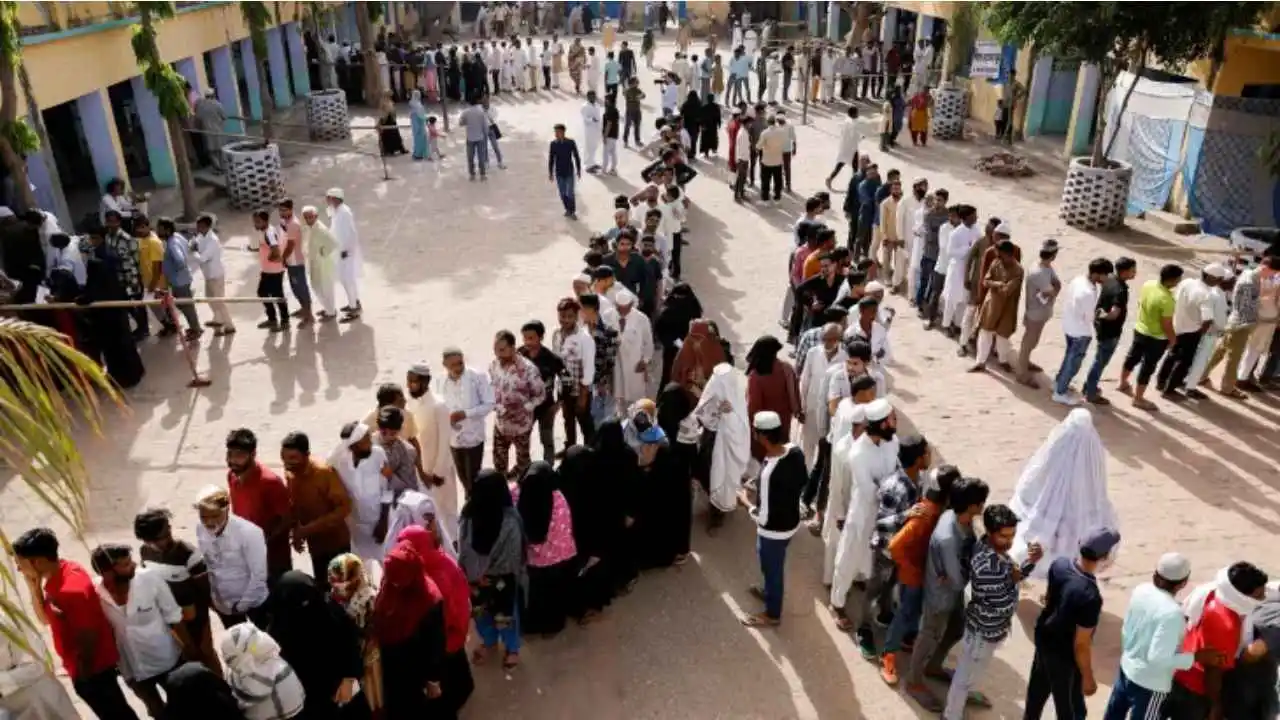
The Lok Sabha elections 2024 began today, marking the onset of the world’s largest electoral event. Voting ended in all 39 Lok Sabha constituencies in Tamil Nadu with a total voter turnout of 62.02%. State BJP chief and Coimbatore Lok Sabha constituency candidate K Annamalai said, they were getting complaints from a large number of voters that their names were missing from the voters’ list.
This incident happened in many places. Annamalai said they are demanding re-poll in places where the names of a large number of voters were missing.He said they had a doubt that there was some political interference because the names of a large number of BJP caders were missing from the voters list.
The voters in South Chennai showed lukewarm interest to participate in the election process and had a total voter turnout of 57.04% till 5pm. Although the overall percentage is poor, some areas like Thiruvanmiyur witnessed brisk polling from 7am onwards. Elderly, middle aged and young voters turned up and it was a family outing for many as they cast their vote.
Corporation volunteers assisted senior citizens with wheelchairs and guided them to their respective polling booths. The hot weather also had an impact on the polling as it reduced the voter turnout as many booths in the corporation school in MGR Nagar were seen deserted around noon. Senior citizens showed courage as they reached the polling booths in private vehicles to exercise their franchise.
Most of the polling booths had shamianas for voters so that they could wait in a queue. Some people even found refuge in the nearby buildings to save themselves from the scorching heat. The polling officials gave instructions to the voters to keep their phones switched off while they exercised their franchise. The security personnel at the polling booth also regulated traffic outside the polling booth in MGR Nagar.
2024 Lok Sabha Elections
Deserted by key supporters, the Kamal Nath story looks set to wind to an end in Chhindwara
Nath’s closest allies in his near 50-year reign—Deepak Saxena and Kamlesh Shah—have deserted him. His local team of corporators has also decided to jump ship leaving a gaping hole in Nath’s campaign trail.
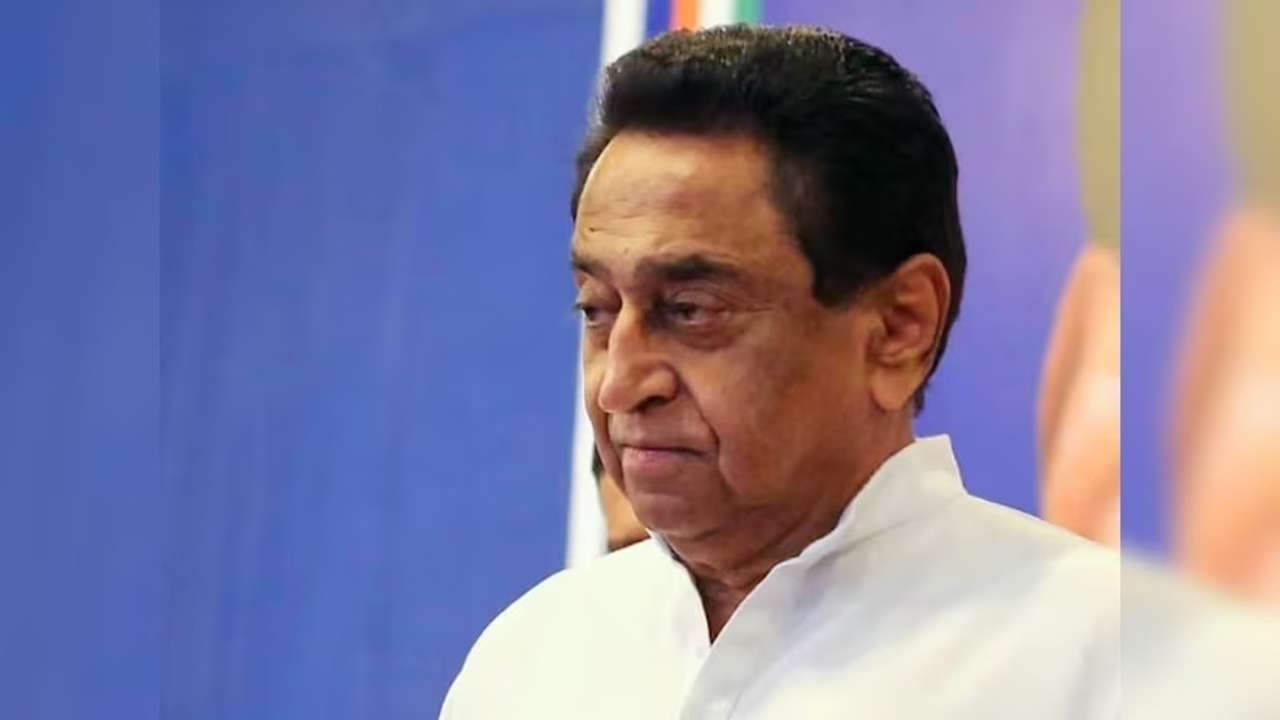
By Neeraj Mishra
The Congress has lost Chhindwara only once since Independence when the wily Sunderlal Patwa was sent there by Atal Bihari Vajpayee to test Kamal Nath’s hold on the constituency. Patwa won the 1997 by-election by a slim margin in the backdrop of Nath having forced his wife to first contest and later vacate the seat for him. Nath, however, returned to his winning ways the very next year and has won the seat nine times.
It seems possible that Chhindwara, the lone surviving Congress seat, will be lost again this time and may be forever. A day ahead of polling, the town was drowned in saffron. Not so much the effect of vigorous campaigning by Vivek Sahu of the BJP but the Ram Navami festival which brought out saffron flags on every rooftop. The effect is likely to last since the polling is today. At 77, Nath is unlikely to contest another election here and his son Nakul seems like a pale shadow of his father unable to even make a forceful speech. The days of running Chhindwara from Shikarpur kothi are gone.
Nath’s closest allies in his near 50-year reign—Deepak Saxena and Kamlesh Shah—have deserted him. His local team of corporators has also decided to jump ship leaving a gaping hole in Nath’s campaign trail. Nakul had won by a margin of 37,000 votes in 2019 and the biggest lead had come from Kamlesh’s Amarwada Assembly segment. With Saxena in control of Chhindwara and forced to show his strength in his new party, it is highly likely that Nakul will not be depending on these segments. Instead, the Congress campaign was focused on Pandhurna, Parasia and Chaurai.
Amit Shah was in the region a couple of days ago and warned all BJP workers—old and new—against lethargy. His message was clear, the BJP wants all 29 seats this time. Cabinet Minister Kailash Vijayvargiya is camped here and using all his political acumen for the desired results. One such tactic was to raid the Shikarpur Kothi of Kamal Nath for his assistant Miglani who handles almost everything for him. With Miglani temporarily neutralised, BJP is best placed to repeat its win in Chhindwara in 1997.
2024 Lok Sabha Elections
Lok Sabha Elections 2024: Nearly 40% voter turnout till 1pm
Chennai recorded an average voter turnout of 34% as of 1 pm on Friday. According data released by the Election Commission of India, Chennai (North) recorded 35%, Chennai (Central) recorded 32.3% and Chennai (South) recorded 34%.
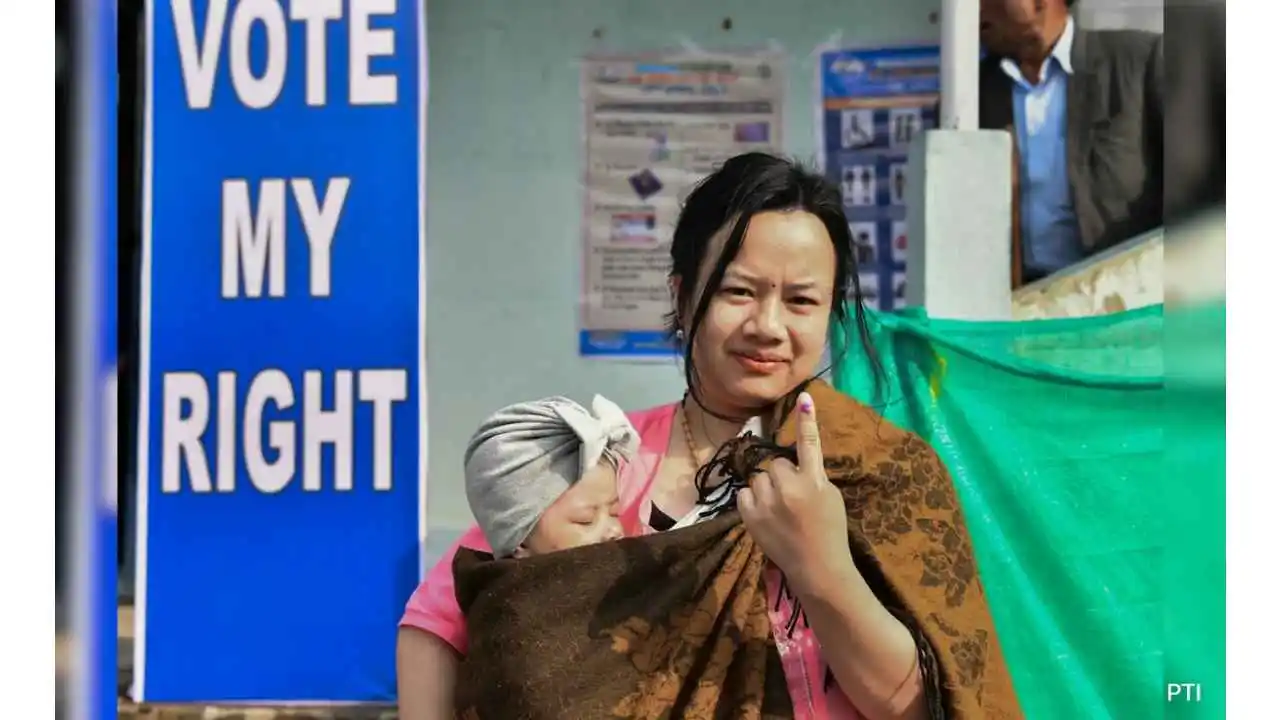
The first phase of voting for the 18th Lok Sabha elections started taking place in 21 states and Union territories on Friday. Nearly 40% voter turnout was recorded till 1pm across the states. Seats in Assam, Arunachal Pradesh, Chhattisgarh, Bihar, Maharashtra, Madhya Pradesh, Manipur, Mizoram, Meghalaya, Rajasthan, Nagaland, Tamil Nadu, Sikkim, Uttar Pradesh, Tripura, West Bengal, Uttarakhand, Jammu and Kashmir, Andaman and Nicobar Islands, Lakshadweep and Puducherry go to elections on Friday.
There has been a substantial increase in the voter turnout charts across the Northeast states, with Tripura leading at 53.04% until 1 pm, as per the data released by the Election Commission of India. Other northeast states like Manipur (46.92%) and Meghalaya (48.91%) are also witnessing high voter turnout. After Tripura, West Bengal is experiencing a high voter turnout of 50.96%.
Chennai recorded an average voter turnout of 34% as of 1 pm on Friday. According data released by the Election Commission of India, Chennai (North) recorded 35%, Chennai (Central) recorded 32.3% and Chennai (South) recorded 34%.
Over 33% voter turnout was recorded in the first 6 hours of voting on Friday in 12 parliamentary constituencies of Rajasthan. According to the Election Commission, voting started at 7 am amid tight security arrangements and 33.73 % voting took place till 1 pm. The highest voter turnout of 40.72 % was recorded in the Ganganagar Lok Sabha seat while Karauli-Dholpur saw the lowest turnout of 28.32 %. Jaipur recorded a poll percentage of 39.35 %.
Over 37 % voter turnout was recorded till 1 pm in the Lok Sabha election being held for five parliamentary constituencies in Uttarakhand on Friday. Elections began at 7 am and the five constituencies recorded an overall poll percentage of 37.33 % up to 1 pm. The Nainital-Udham Singh Nagar seat recorded the highest turnout of 40.46 %, followed by Haridwar with 39.41%, Pauri Garhwal with 36.60 %, Tehri Garhwal with 35.29 % and Almora with 32.29 %.
-
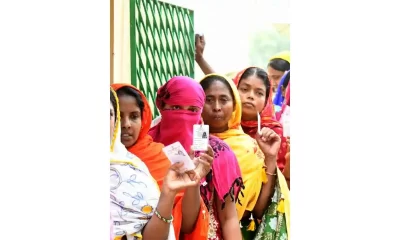
 2024 Lok Sabha Elections13 hours ago
2024 Lok Sabha Elections13 hours agoPrime Minister Narendra Modi urges citizens to vote in record numbers as voting for first phase of Lok Sabha elections begins on 102 seats across India
-
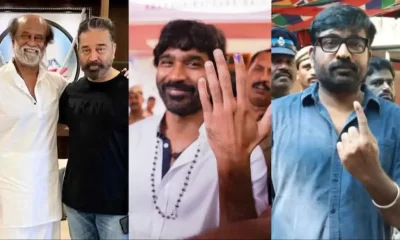
 2024 Lok Sabha Elections11 hours ago
2024 Lok Sabha Elections11 hours agoKamal Haasan, Rajinikanth, Vijay Sethupathi, Dhanush vote in Chennai
-

 2024 Lok Sabha Elections12 hours ago
2024 Lok Sabha Elections12 hours agoLok Sabha elections 2024: Google Doodle marks the start of polls with index finger voting symbol
-
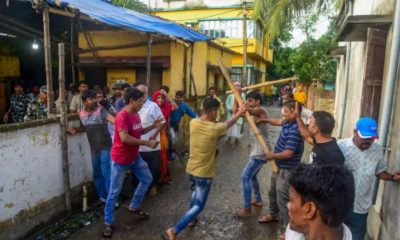
 2024 Lok Sabha Elections11 hours ago
2024 Lok Sabha Elections11 hours agoLok Sabha elections 2024: TMC, BJP workers clash in West Bengal’s Cooh Behar ahead of voting
-

 2024 Lok Sabha Elections10 hours ago
2024 Lok Sabha Elections10 hours agoLok Sabha elections 2024: Newly married couple cast vote in Jammu and Kashmir’s Udhampur, video goes viral
-

 Entertainment8 hours ago
Entertainment8 hours agoDo Aur Do Pyaar social media review: Social media users say Vidya Balan, Pratik Gandhi deliver standout performances in this adorable film
-

 2024 Lok Sabha Elections10 hours ago
2024 Lok Sabha Elections10 hours agoTamil Nadu BJP chief K Annamalai says party will sweep Karnataka and emerge victorious in Telangana, accuses DMK, AIADMK of influencing voters in Coimbatore
-

 Entertainment9 hours ago
Entertainment9 hours agoYami Gautam starrer Article 370 releases on Netflix today

